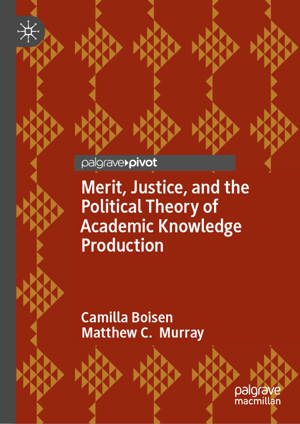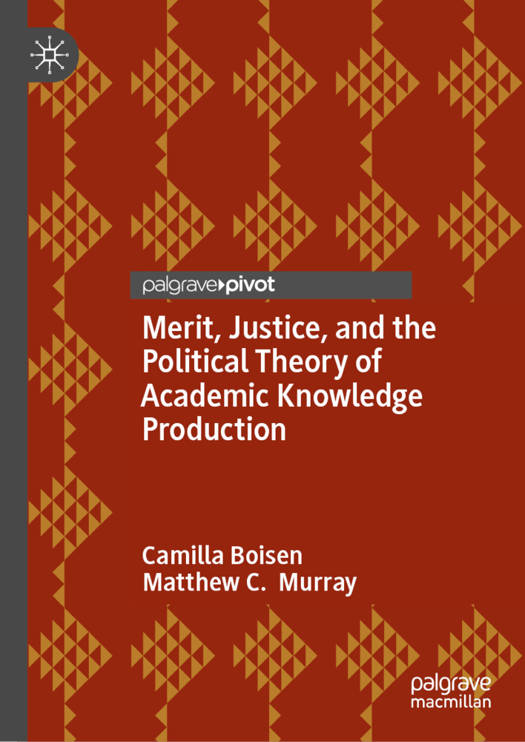
- Retrait gratuit dans votre magasin Club
- 7.000.000 titres dans notre catalogue
- Payer en toute sécurité
- Toujours un magasin près de chez vous
- Retrait gratuit dans votre magasin Club
- 7.000.0000 titres dans notre catalogue
- Payer en toute sécurité
- Toujours un magasin près de chez vous
Merit, Justice, and the Political Theory of Academic Knowledge Production
Camilla Boisen, Matthew C MurrayDescription
Academia has long established itself as an institution of knowledge and ideas. Facing pressure, many academic fields and institutions have turned their attention, singularly and collectively, to the task of what to do to rectify the causes of under-representations both academic knowledge itself and who gets to be an academic producer of knowledge. Boisen and Murray argue that simply solving the contemporary symptoms of inequity in ideas, knowledge production and the academy is not enough. Political Theory must be used to analyze why dominant ideas and institutions, namely merit and the resulting meritocracy and meritocratic procedures, were given power in the first place. In using political theory and theories of justice, the book argues that academia must radically shift rather than procedurally reform these methods of evaluation in order to achieve a more coherent approach to diversity in ideas, academic knowledge producers and academic knowledge production, which are necessary to bring about other forms of social change and reform in our larger world. In questioning the ideals and the use of rival ideals to temper flawed concepts, the present motivations and justifications for producing academic knowledge can be relegated as political tools, allowing true meaningful reform. Boisen and Murray show how contemporary crises in academia around diversification of perspectives can only be solved by considering the justifications of academic knowledge production, and the inherent risk of retaining the established competitive and presumptively 'natural', but ultimately biased, methods of deriving academic authority.
Spécifications
Parties prenantes
- Auteur(s) :
- Editeur:
Contenu
- Nombre de pages :
- 133
- Langue:
- Anglais
Caractéristiques
- EAN:
- 9783031654978
- Date de parution :
- 10-08-24
- Format:
- Livre relié
- Format numérique:
- Genaaid
- Dimensions :
- 142 mm x 203 mm
- Poids :
- 294 g

Les avis
Nous publions uniquement les avis qui respectent les conditions requises. Consultez nos conditions pour les avis.






